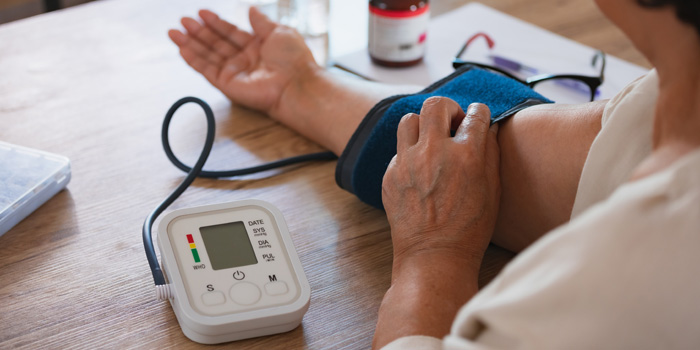Hypertension, or high blood pressure, is a common condition that affects about 70% of adults over 65 years old. It occurs when the force of blood against the artery walls is too high, which can damage the blood vessels and organs over time. Hypertension can increase the risk of heart disease, stroke, kidney disease, and dementia, among other health problems.
However, hypertension can be controlled with proper treatment and lifestyle changes. There are a number of cautions that seniors with hypertension should take to keep their blood pressure under control and prevent complications.
Check blood pressure regularly.
The only way to know if you have hypertension is to measure your blood pressure regularly. Normal blood pressure for most adults is less than 120/80 mmHg, while hypertension is defined as 130/80 mmHg or higher.
However, this guideline is more aggressive than some previous ones, such as the 2014 Eighth Joint National Committee (JNC 8) guideline, which defined hypertension as a systolic blood pressure of 140 mmHg or higher, or a diastolic blood pressure of 90 mmHg or higher for adults aged 60 and older. In cases of adults with diabetes or chronic kidney disease those numbers should be 10 points lower for both readings according to the same study.
The guidelines are based on different evidence and opinions and there is no consensus on which one is best for older adults. Some experts argue that lowering blood pressure too much can cause more harm than good, such as increasing the risk of falls, fractures, cognitive impairment, or kidney damage. Others argue that lowering blood pressure can prevent more cardiovascular events, such as heart attacks, strokes, or heart failure, and improve quality of life.
Therefore, the best blood pressure level and treatment goal for older adults may vary depending on individual characteristics, preferences, and values. Older adults should discuss the benefits and risks of different blood pressure targets and medications with their doctors and make a shared decision that suits their needs and goals. You should also keep a record of your blood pressure readings and share them with your doctor.
Take your medication as prescribed.
If you have hypertension, your doctor may prescribe medication to lower your blood pressure and reduce your risk of complications. There are different types of blood pressure medication, such as diuretics, beta-blockers, calcium channel blockers, and angiotensin-converting enzyme inhibitors.
You should take your medication as prescribed and not miss or double doses. Do not stop taking your medication without consulting your doctor, as this may cause your blood pressure to spike.
Make healthy lifestyle changes.
Besides medication, you can also lower your blood pressure by making some healthy lifestyle changes, such as:
- Eat a balanced diet that is low in salt, saturated fat, and cholesterol, and high in fruits, vegetables, whole grains, and lean protein. You can follow the Dietary Approaches to Stop Hypertension (DASH) diet, which has been proven to lower blood pressure.
- Get regular physical activity, such as walking, cycling, swimming, or gardening, for at least 150 minutes per week. Exercise can help lower your blood pressure, strengthen your heart, and improve your mood and energy.
- Limit your alcohol intake, as alcohol can raise your blood pressure and interfere with your medication. Women should drink no more than one drink per day or two drinks per day for men.
- Quit smoking if you do, as smoking can damage your blood vessels and increase your blood pressure and risk of heart disease and stroke.
- Manage your stress, as stress can trigger or worsen your blood pressure. You can practice relaxation techniques, such as deep breathing, meditation, or yoga, or engage in hobbies or social activities that make you happy.
Hypertension is a serious but treatable condition that can affect seniors’ health and quality of life. By taking some cautions, such as checking your blood pressure regularly, taking your medication as prescribed, and making healthy lifestyle changes, you can keep your blood pressure under control and prevent complications.

